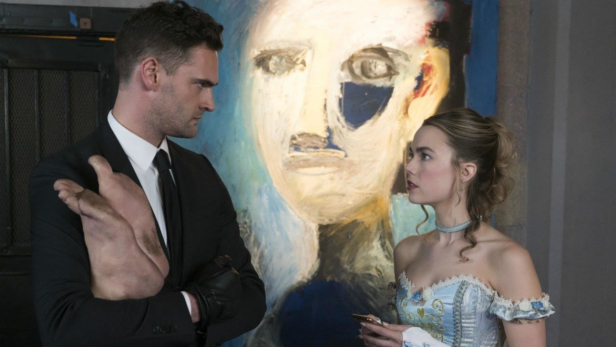There is a new anthology series in the annual television schedules. Produced by Blumhouse TV for Hulu, Into The Dark takes the premise of ‘calendar horror’ to its logical conclusion: 12 standalone, feature-length episodes released over 12 months, each helmed by a different director, and each set around a holiday from its associated month. So we can look forward, for example, to Nacho Vigalondo’s Christmas-flavoured SF episode in December — but in the meantime, Paul Davis kicks off the series brilliantly with the Halloween-set October episode The Body, expanded from his 2013 short. Davis previously helmed the feature-length documentary Beware The Moon: Remembering ‘An American Werewolf In London’ (2009) — and a walk-in cameo from American Werewolf‘s own John Landis sets The Body‘s tone of winning horror comedy.
From The Trouble With Harry (1955) to Weekend At Bernie’s (1989), there is nothing quite like an insistently present corpse to expose the follies and absurdities of life. An unnamed celebrity is dead (or almost dead) before the narrative of The Body has even started, killed by professional hitman Wilkes (Tom Bateman) — but Wilkes’ attempts to get the body across Los Angeles, using Halloween as cover, come a cropper as flat tyres and pesky partygoers conspire to complicate the journey and increase the body count. Along the way, Wilkes picks up the resourceful Maggie (Rebecca Rittenhouse), who sees in the sharply-dressed psychopath the kind of freedom from social norms of which she has only ever dreamed, engendering a rather one-sided — and probably doomed — romance between this odd couple.
A knowing, funny update of Hitman (2007) and American Psycho (2000) to generation #metoo, The Body is both cross-town odyssey and battle of the sexes, where death is always in close proximity, and our sympathies remain perversely with the devil. Playing willl-they-won’t-they with both love and death, it is a memento mori and an existential appeal for a more liberated life.
